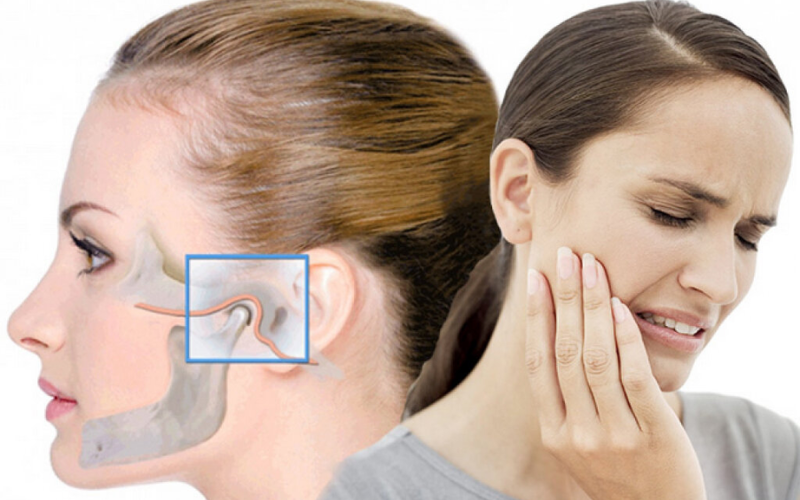6287 Taylorsville Rd Building #2, Fisherville, KY 40023
A Comprehensive Guide to TMJ Surgery and Post-Operative Care


A Comprehensive Guide to TMJ Surgery and Post-Operative Care
The temporomandibular joint (TMJ) plays a pivotal role in jaw movement, but for some, TMJ disorders can lead to persistent pain and limitations in daily life. While non-surgical treatments are often the first line of defense, TMJ surgery becomes a consideration in specific cases. In this extensive guide, we’ll delve into the intricacies of TMJ surgery, discussing when it’s a viable option, types of surgeries, risks, and alternative treatments. Our goal is to empower you with insights to make informed decisions about managing your TMJ disorder.
What Are TMJ Disorders?
TMJ disorders refer to a range of conditions that impact the temporomandibular joint and the adjacent muscles, leading to symptoms such as jaw pain, headaches, and restricted movement. These disorders can be attributed to various factors including stress, teeth grinding, misaligned teeth, or injury. While conservative treatments are often the first line of defense, such as lifestyle modifications, physical therapy, and medications, some individuals may require surgical intervention for effective management.
When is TMJ Surgery Considered?
TMJ surgery becomes a consideration when conventional treatments have been exhausted, and the patient continues to endure severe pain and dysfunction in their jaw. It is imperative to contemplate surgery only after a comprehensive evaluation by a qualified healthcare professional, given its inherent risks, and should not be the primary option. Various scenarios may prompt the consideration of TMJ surgery:
Structural Issues: In cases where there are structural problems within the jaw joint, such as damage to the joint or surrounding tissues, surgery may be deemed necessary to repair or replace the impaired components.
Failed Conservative Treatments: If non-surgical approaches, including physical therapy, medications, and lifestyle modifications, fail to provide relief, surgery may emerge as a viable option.
Disc Displacement: Surgical interventions like repositioning or disc replacement may be recommended if the articular disc within the TMJ is significantly displaced, causing severe pain and dysfunction.
Severe Degeneration: In instances of advanced joint degeneration or osteoarthritis leading to the deterioration of the joint, surgery may be essential to address the condition.
Traumatic Injury: Should the TMJ suffer a traumatic injury, such as a fracture, surgical intervention may become imperative to restore function and alleviate associated pain.
Thorough evaluation and consultation with an oral and maxillofacial dentist or a specialist in TMJ disorders are crucial steps to ascertain whether surgery is the appropriate course of action for the specific condition.
Types of TMJ Surgery
Several procedures address TMJ disorders, tailored to the individual’s needs:
Arthroscopy: Minimally invasive, using a camera to assess and treat mild to moderate issues.
Arthrocentesis: Flushing the joint to remove debris and reduce pain and inflammation.
Open-Joint Surgery: Involves an incision to access the joint directly, for repairing or replacing damaged components.
Total Joint Replacement: Replaces the entire joint in severe degeneration cases.
Repositioning Surgery: Corrects disc alignment within the joint.
Orthognathic Surgery: Addresses TMJ disorders associated with jaw misalignment.
Understanding these options is crucial for making informed decisions about your unique condition.
Lifestyle Modifications after TMJ Surgery
Post-TMJ surgery, adopting specific lifestyle changes ensures a smooth recovery:
Soft Diet Transition: Focus on soft foods initially, gradually reintroducing a regular diet.
Pain Management: Follow prescribed pain medications and apply ice packs as directed.
Oral Hygiene: Maintain gentle brushing and flossing, using recommended mouthwashes or rinses.
Avoiding Excessive Jaw Movement: Limit activities like yawning or excessive talking to promote healing.
Physical Rest: Adequate rest supports recovery; avoid strenuous activities initially.
Follow-up Appointments: Attend all scheduled follow-ups to monitor progress and address concerns.
Stress Management: Incorporate stress-relief techniques like meditation or yoga into your routine.
Avoiding Harmful Habits: Break habits like teeth grinding or clenching to prevent strain on the healing jaw.
Hydration and Nutrition: Stay hydrated and maintain a balanced diet rich in vitamins and minerals.
Patience and positivity are vital for a successful recovery.
FAQs
1. How long does recovery take after TMJ surgery?
Recovery varies but can take weeks to months. Follow post-operative instructions and attend follow-ups for optimal healing.
2. Is TMJ surgery a permanent solution?
Success depends on factors like surgery type and post-operative care. Additional treatments may be needed for long-term maintenance.
3. How can pain be managed after TMJ surgery?
Follow prescribed pain management plans, including medications and ice packs. Rest, stress management, and avoiding jaw strain are also essential.
4. Are there alternatives to TMJ surgery?
Explore non-surgical options like physical therapy, lifestyle changes, medications, and dental appliances before considering surgery.
TMJ surgery is a significant decision requiring careful consideration. While it offers relief for severe cases, exploring non-surgical options first is advisable. Each individual’s situation is unique, and a tailored treatment plan with your healthcare team ensures the best outcomes.
Whether opting for surgery or alternative treatments, the goal is to alleviate TMJ-related pain and enhance your quality of life. With the right approach and guidance, relief is attainable, enabling you to regain control over your oral health and overall well-being.




